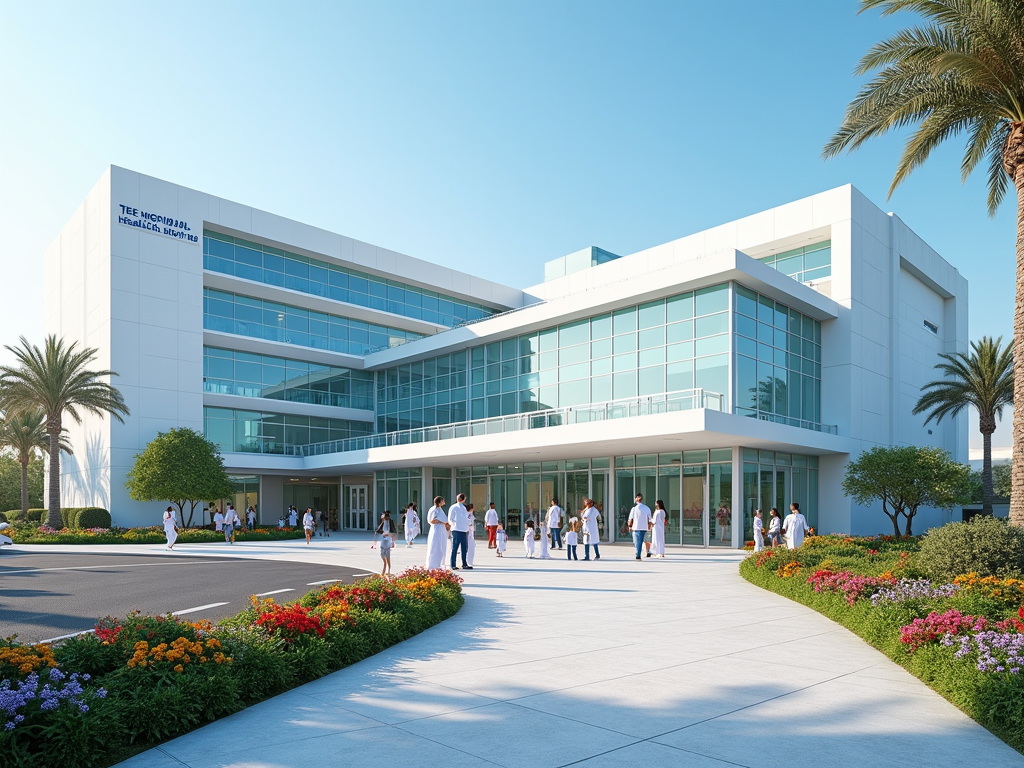Investing in Dubai’s healthcare industry presents a lucrative opportunity for investors, driven by a burgeoning population and an increasing demand for advanced medical services. The UAE has emerged as a leading destination for healthcare innovations, attracting both local and international investors. This article explores the key factors that make Dubai’s healthcare sector a promising investment opportunity, the current trends shaping the market, and the potential challenges investors may face.
Overview of Dubai’s Healthcare Market

Dubai’s healthcare industry is one of the fastest-growing sectors in the emirate, supported by government investments and a favorable regulatory framework. The emirate’s vision for healthcare is aligned with the UAE’s broader aim to become a global hub for medical tourism and advanced healthcare services. Key elements driving this growth include:
- Population Growth: The UAE’s population has been steadily increasing, which elevates the demand for healthcare services.
- Medical Tourism: Dubai is positioning itself as a top destination for medical tourism, attracting patients from around the globe seeking quality healthcare.
- Government Initiatives: The Dubai Health Authority (DHA) and other regulatory bodies are continuously enhancing healthcare policies and funding.
- Technological Advancements: The rise of telemedicine and innovative medical technologies are reshaping the healthcare landscape.
- Private Sector Participation: The private sector’s active involvement in healthcare enables diverse service offerings and improved access.
Investment Opportunities

The diverse nature of Dubai’s healthcare market offers multiple avenues for investment, which can be categorized into several key areas:
- Healthcare Facilities: Investment in hospitals, clinics, and specialized medical facilities is critical to meeting the rising demand for healthcare services.
- Health Technology: Innovations in digital health solutions, including telehealth platforms and health management software, present significant growth opportunities.
- Pharmaceuticals and Biotechnology: Investing in pharmaceutical companies or biotech startups is promising, given the increased demand for advanced medications.
- Training and Education: With the healthcare sector evolving, there is a need for training programs and educational institutions to equip healthcare professionals.
- Health Insurance Services: The expansion of private health insurance plans creates new opportunities for service providers.
Several trends are shaping the current landscape of healthcare investment in Dubai, making it essential for investors to stay informed about these developments:
- Shift to Preventive Care: Healthcare services are increasingly focusing on preventive measures that enhance overall wellness, reducing long-term medical costs.
- Integration of Technology: The use of Artificial Intelligence (AI) and data analytics in diagnostics and patient management is on the rise.
- Aging Population: With a growing elderly population, there’s a higher demand for specialized geriatric care and related services.
- Telemedicine Growth: The COVID-19 pandemic has accelerated the acceptance of telemedicine, leading to expanded service models.
- Wellness and Lifestyle Medicine: As people prioritize overall health, investments in wellness centers and lifestyle-focused practices are gaining traction.
Challenges in the Investment Landscape
While the opportunities in Dubai’s healthcare sector are abundant, potential investors should be aware of certain challenges they may encounter, including:
- Regulatory Hurdles: Navigating the complex regulatory environment can be time-consuming and requires local knowledge to ensure compliance.
- Market Competition: The influx of investors and healthcare providers has increased competition, making it essential to differentiate offerings.
- High Operational Costs: Establishing and maintaining healthcare facilities can require substantial capital and ongoing investment.
- Cultural Sensitivity: Understanding and respecting the local culture and patient needs are crucial for successful healthcare service delivery.
- Rapid Technological Changes: Keeping pace with technology advancements demands ongoing investments in innovation and training.
Conclusion
Investing in Dubai’s healthcare industry represents an exciting opportunity for those looking to tap into a rapidly evolving market. With a strong infrastructure, government support, and an increasing emphasis on advanced healthcare services, Dubai is well-positioned to continue as a leader in the healthcare sector. However, potential investors must be prepared to navigate regulatory complexities, competitive pressures, and changing consumer behaviors. By staying informed and adaptable, investors can successfully navigate this promising landscape.
Frequently Asked Questions
1. What are the main drivers of growth in Dubai’s healthcare sector?
The main drivers include population growth, medical tourism, government initiatives, technological advancements, and private sector participation.
2. What types of investments are commonly pursued in Dubai’s healthcare market?
Investments can be made in healthcare facilities, health technology, pharmaceuticals, training and education, and health insurance services.
3. Are there specific trends that investors should watch in Dubai’s healthcare sector?
Yes, trends such as a shift to preventive care, integration of technology, an aging population, telemedicine growth, and wellness-focused services are significant.
4. What challenges should investors be aware of when entering the Dubai healthcare market?
Challenges include regulatory hurdles, market competition, high operational costs, cultural sensitivity, and rapid technological changes.
5. How can investors effectively navigate the healthcare investment landscape in Dubai?
Investors can navigate the landscape by conducting thorough market research, understanding local regulations, and being agile to adapt to market trends.




